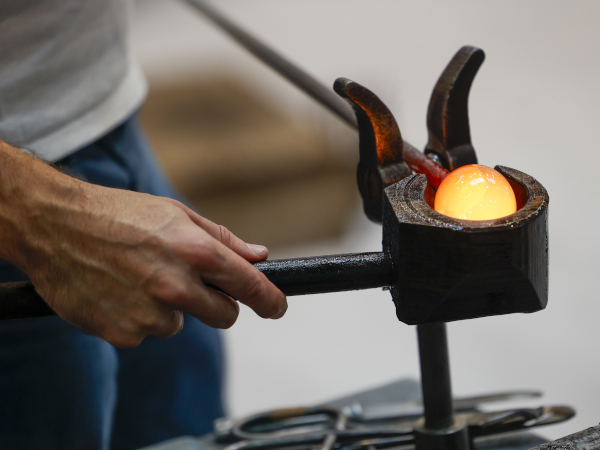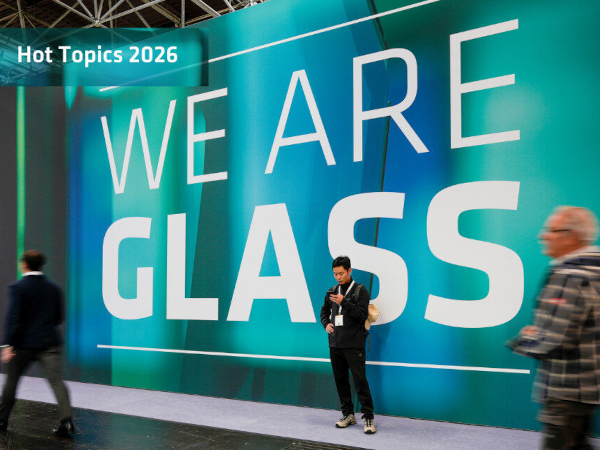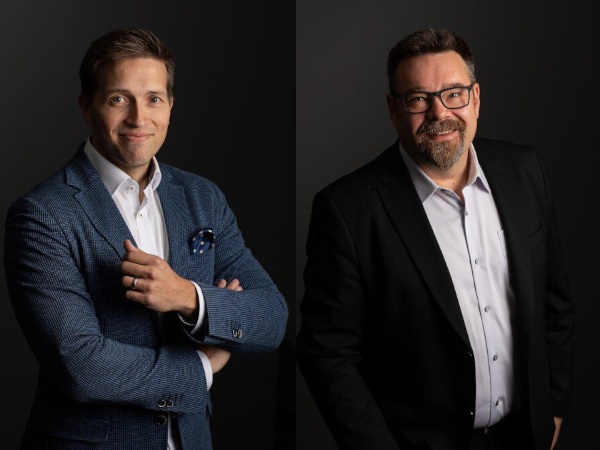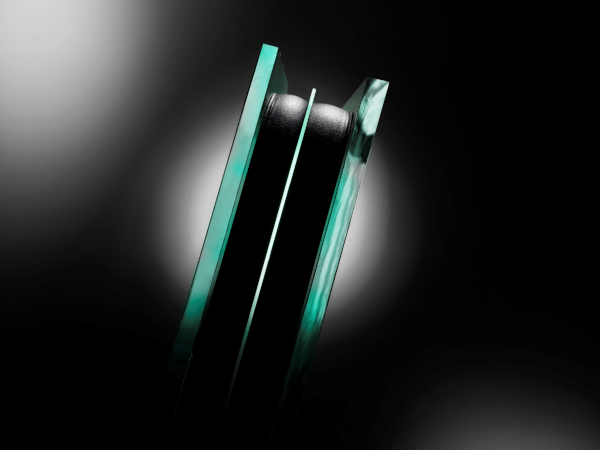Date: 16 April 2008
In a series of features Messe Düsseldorf presents interesting projects realised with glass throughout the city as a foretaste of the world’s biggest trade fair in the international glass sector held in Düsseldorf in October 2008. Those coming to glasstec 2008 in Düsseldorf should use this opportunity to take a look at the multi-functional glass façade of the Capricorn House at the Düsseldorf Media Harbour.
Completed in 2006 the Capricorn House features a sophisticated, holistic energy concept. The building owner, Mönchengladbach-based Capricorn Development GmbH & Co. KG, required architects Gatermann + Schossig to erect a building with both primary energy demands 20 % below the values set by the current energy-savings ordinance and utterly flexible office design. To meet this demand the Cologne architects opted, amongst other things, for a decentralised, in-facade ventilation system. This concept offers many benefits not only from an energy viewpoint but also in terms of space gains inside the building. The whole complex is “serviced” by three “facility cores” that take up as little as 10% of the total floor area. Ventilation ducts under the ceilings are rendered superfluous widening the scope for room layout design. Another demand made by the owner was to create as much A1 office space with high user comfort as possible. The architects also complied with this brief by choosing a meandering-type ground plan for the narrow plot and by integrating four cross-storey, 26 m high atriums in the space in between. As a result the number of offices with direct daylight was clearly increased. Furthermore, the spacious atriums protect office users from traffic noise and help control the building climate.
Multi-functional glass facade
An engineering masterpiece at Capricorn House is the so-called i-modulFacade. Composed of 55% transparent and 45% opaque façade modules it ensures the building does not overheat in summer. The aluminium-section facade is multi-functional and contains all the necessary technical facilities to control the room climate individually. The opaque areas are made up of single-shell glass components with an enamel back coating in high-visibility red and serve as a cladding for the roughly 20 centimetre thick ventilation modules. These cool, ventilate air and recover heat. Furthermore, lighting, noise absorption and acoustics elements were incorporated into the façade panels. Thermal insulation is ensured by the curtain-wall façade area containing Vacutherm panels. All facade modules are made up of three components each: a 1.80 m high, red glass panel, a skylight that opens at night to cool the rooms and a floor-to-ceiling, triple-glazed box-type window. On the ground floor the facade units are different because of higher ceiling heights and consist of uninterrupted opaque modules. They come with built-in high-thermal insulation flaps that open outwards.
On the standard floors floor-to-ceiling casement windows ensure ventilation. This means users can individually control their room climate. Pull-up sheers are integrated in the casement windows as sunshades and protected against weathering by deflection sheets.
Complete pre-assembly
A crucial advantage of this innovative facade system is that it can be completely pre-assembled. According to the architects, this substantially increases the quality, accelerates installation and provides assured planning. All 1,100 facade elements of the Capricorn House were factory-assembled and delivered just in time for mounting.
Geothermal source of energy
Despite their multi-functional qualities the decentralised ventilation modules in the facade do not entirely suffice to heat and/or air-condition the building. The base-load, heating and cooling energy supply for the Capricorn House is provided by two heat pumps in conjunction with a groundwater well used as a geothermal source of energy. Heat pumps recover the energy for heating and cooling the building from the groundwater pumped up by three suction wells. Both heating and cooling is achieved through concrete core activation in the ceilings. In addition to this, the building is connected to a long-distance heat supply and refrigeration system.
Project Information:
Project: Capricorn Haus
Location: Holzstrasse 6, 40219 Düsseldorf, Germany
Owner: capricorn Development GmbH + Co.KG
Construction Period: 2004 to 2006
Architects: Dörte Gatermann & Elmar Schossig, Cologne
Upper Floors: 7
Underground Floors: 4
Gross Floor Area: approx. 26,000 m2
Total Useful Area: 42,000 m2
Expected Energy Costs: 0.65 Euro m2/month
Awards:
2007 "best architects 2008" label awarded
2006 Innovation Prize for Architecture and Technology, AIT
1st Prize for the Integration of decentralised ventilation elements in i-modulFassade facade
2006 Innovation Prize Architecture and Office
About glasstec
glasstec 2008 will be held in Düsseldorf from 21 to 25 October. For the 20th time this year, the leading trade fair of the international glass industry presents the latest developments from the glass industry, the glass systems engineering sector and the glazier trade. Thus glasstec is the only international trade fair that covers the entire value-added process for the material glass in all facets.







Add new comment